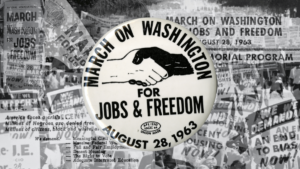The Soul Mates Bork and Paul
That Robert Bork took a stand against the Civil Rights Act in 1963 is bad enough; back then, Bork had plenty of company. That Rand Paul seems to hew to these views in 2010 is as disturbing as it is amazing.I’m having a flashback to the 1987 confirmation battle over Robert H. Bork. Not surprising, with a pending Supreme Court nomination, except my flashback has nothing to do with Elena Kagan. It’s about Rand Paul, the Republican Senate nominee from Kentucky, and the Civil Rights Act of 1964. Bork and Paul are ideological soul mates.
For those who think of the Bork hearings as a pummeling so unfair that it spawned its own verb — to Bork — here’s a reminder. Writing in The New Republic in 1963 about the proposed Civil Rights Act, Bork inveighed against a principle of “unsurpassed ugliness” — not of racism, mind you, but of the notion of compelling private property owners to stop discriminating. Sound familiar? The next year, Bork lit into the proposed bans on discrimination in both employment and public accommodations, saying they would “compel association even where it is not desired,” and citing “serious constitutional problems” with the measure.
Bork renounced those views publicly in 1973, during his nomination for solicitor general. Paul’s about-face took less than 24 hours. There is a coherent libertarian philosophy underlying the original views of both the Supreme Court nominee and the Kentucky Senate candidate: Government should keep its nose out of private matters, the federal government is one of extraordinarily limited powers, maximizing individual freedom is the greatest good. That Bork took this principle to the extreme he did in 1963 is bad enough; back then, Bork had plenty of company. That Paul seems to hew to these views in 2010 is as disturbing as it is amazing.
Ruth Marcus’ e-mail address is marcusr(at symbol)washpost.com.
© 2010, Washington Post Writers Group
Your support matters…Independent journalism is under threat and overshadowed by heavily funded mainstream media.
You can help level the playing field. Become a member.
Your tax-deductible contribution keeps us digging beneath the headlines to give you thought-provoking, investigative reporting and analysis that unearths what's really happening- without compromise.
Give today to support our courageous, independent journalists.









You need to be a supporter to comment.
There are currently no responses to this article.
Be the first to respond.